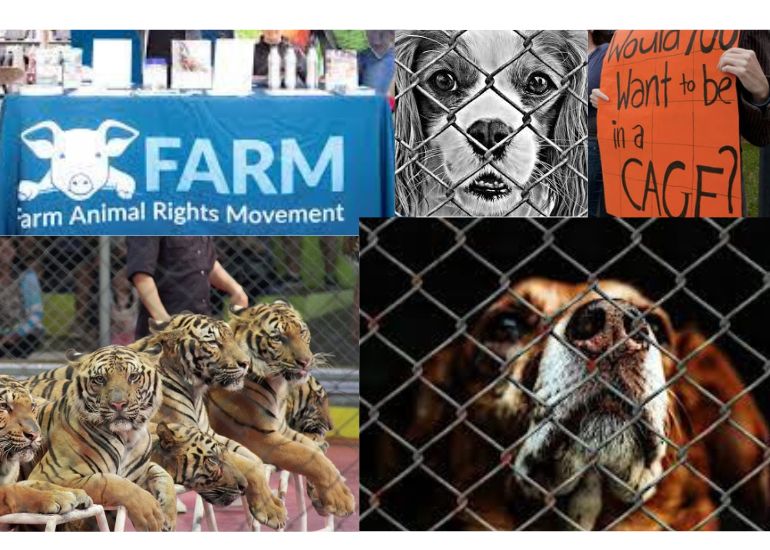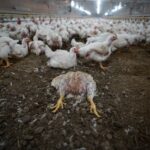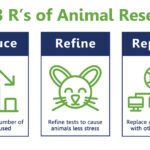In the vibrant tapestry of animal rights activism, the question of pet ownership emerges as a compelling thread, weaving together the ideals of compassion and responsibility. As advocates surge forward, championing the rights of non-human beings, they seek to foster a world where all creatures are treated with dignity and respect. Yet, can those who so fiercely support animal rights embrace the role of pet owners without falling into dissonance? This inquiry navigates the intricate dynamics of personal choice and ethical considerations associated with pet ownership within the realm of animal activism.
To explore this multifaceted issue, we must first delve into the philosophy underpinning animal rights. At its core, this philosophy espouses the belief that animals possess inherent value and, consequently, deserve to live free from exploitation and suffering. This foundation lays the groundwork for understanding how pet ownership intersects with advocacy. Advocates often grapple with the notion of companionship as they consider their own animals. For many, owning a pet symbolizes an unbreakable bond—a silent and visceral agreement between species. Yet, this bond invites scrutiny: is it possible to love an animal as a companion while simultaneously recognizing the broader systemic challenges they face?
Theoretically speaking, pet ownership can morph into a microcosm of activism. An individual who provides a loving home for a rescue dog or a cat from a shelter embodies a tangible commitment to welfare. By opting to adopt rather than purchase, such actions send ripples of change through the societal landscape, creating a culture that values life—a compelling metaphor for the advocacy movement itself. Therefore, owning a pet fosters awareness and promotes lifestyles that prioritize the well-being of animals. It serves as a real-world representation of the activism ethos, reflecting the shift from mere advocacy to active engagement.
However, the potential pitfalls of pet ownership must also be examined. A fervent advocate who owns pets may unintentionally reinforce oppressive norms and commodification embedded in the culture of consumerism surrounding animal ownership. The spotlight of scrutiny often shines brightest on breeding practices, where the lineage of purebreds elicits concern about perpetuating genetic predispositions to severe health conditions. Purchasing pets from breeders can be at odds with ideas of compassion and can spark debates about the importance of supporting shelters and rescues in need of homes for abandoned animals.
Moreover, the understanding of pet ownership assumes a level of privilege—whether that privilege is financial, social, or even spatial. Not all advocates have the ability to provide a home for a pet. The complexities of socio-economic factors complicate discussions around pet ownership, particularly in marginalized communities where finding adequate resources and support systems can prove to be a challenge. Additionally, the act of ownership itself demands time, energy, and financial resources that may not be universally available, thus marginalizing some advocates who may wish to share their lives with animals.
Recognizing this dilemma, one can argue for a more expansive view of pet ownership—it should be about stewardship rather than mere possession. This perspective shifts the focus from ownership to guardianship, promoting a relationship characterized by mutual respect, care, and responsibility. Such a stance aligns seamlessly with the overarching goals of animal rights advocacy: to protect, respect, and nurture all beings. Advancing this dialogue helps dismantle the binaries often associated with the activist’s identity, allowing the narrative to accommodate both compassion for pets and a commitment to broader systemic change.
In exploring the nuances of this discourse, it becomes evident that many activists engage with their pets in ways that enhance their advocacy work itself. From educational outreach utilizing their own animals as ambassadors to social media campaigns that highlight adoption, advocates may find that their pets become vital tools for spreading awareness about animal issues, fostering community engagement, and encouraging the adoption of shelter pets. The presence of a beloved animal can help humanize the often-unseen struggles faced by their counterparts, engendering empathy and stirring action among the public.
Furthermore, the dynamics of human-animal relationships challenge the dichotomy of ownership versus advocacy. The interplay of affection and responsibility engenders a profound ethical consideration. For animal rights advocates, this may mean providing a voice for those who cannot speak for themselves, ensuring that their needs are prioritized. Through proper care, education, and an understanding of the needs of their companion animals, activists who choose to own pets can weave a narrative that harmonizes personal fulfillment with their broader mission of advocacy.
Finally, the question of whether animal rights advocates can own pets invites a deeper exploration of the values associated with stewardship, love, and responsibility. Within this nexus exists the potential for transformation. Advocacy does not negate personal companionship; rather, it can amplify the impact of one’s efforts. By focusing on compassion and placing an emphasis on rescuing and supporting those in need, there lies an opportunity for personal fulfillment that coexists with one’s activism.
In conclusion, pet ownership for animal rights activists is not an unequivocal stance. It embodies a delicate balance of ethical considerations, societal responsibilities, and personal choices. As advocates navigate this complex terrain, the emphasis on compassion, integrity, and stewardship will ultimately determine how each individual harmonizes their personal experiences with their broader advocacy efforts. In this intricate dance between love and responsibility, the future of animal rights activism—and the very definition of companionship—will continue to evolve.






